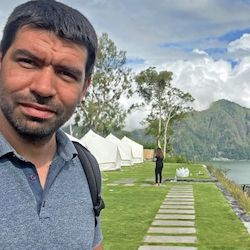In the verdant landscapes of Uganda, the Food For Nature project is emerging as a pioneering initiative aimed at revolutionizing agricultural practices while advocating for environmental stewardship. At its heart, the project strives to synergize the enhancement of local agriculture with the imperative of ecological conservation, particularly in the Kigezi district and around the Bwindi Impenetrable Forest.
Improving Agricultural Practices in Kigezi
Kigezi district, known for its fertile lands, has faced challenges in agricultural efficiency. The Food For Nature project targets this issue head-on by implementing strategies to boost the productivity, profitability, and sustainability of local farming practices. The aim is not just to increase crop yields but to do so in a manner that supports the long-term well-being of the land and its farmers.
A Commitment to Reforestation and Conservation
Recognizing the delicate balance between human activity and natural ecosystems, the project dedicates significant efforts towards reforestation and conservation. This involves allocating private lands for rewilding, thereby aiding in the expansion and connectivity of Uganda's national parks. Such efforts are crucial in regions like the Bwindi Impenetrable Forest, a UNESCO World Heritage Site and a bastion of biodiversity, including the endangered mountain gorilla.
Current Achievements and Future Directions
The project's current phase has seen the establishment of strong relationships with local community leaders and farmers. Through surveys and small-scale experiments, a deeper understanding of the local agricultural conditions has been developed. This groundwork sets the stage for the project's next ambitious phase.
Scaling Up and Seeking Partnerships
The path ahead for Food For Nature involves expanding its reach and impact. To achieve this, the project is actively seeking partnerships in various domains, including funding, agricultural expertise, and conservation efforts. Such collaborations are vital for the project's scalability and long-term success.
Focus on Bwindi and Lake Bunyonyi
Two key areas of focus for the project are the Bwindi Impenetrable Forest and Lake Bunyonyi. The former is a hotspot for conservation due to its incredible biodiversity, while the latter, known for its depth and avian diversity, presents unique agricultural challenges and opportunities.
